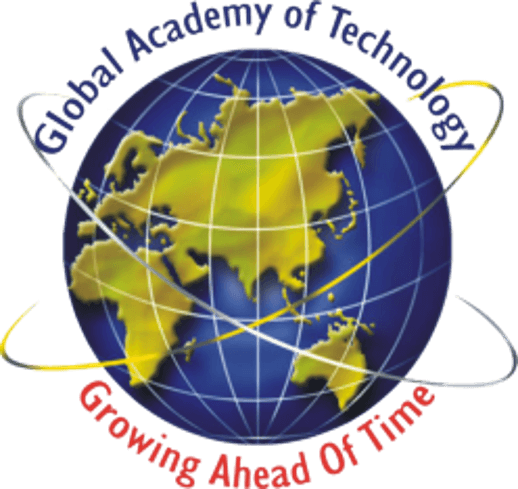Lorem ipsum dolor, sit amet consectetur adipisicing elit. Fuga harum quia, non enim sit facilis dolores neque rem mollitia beatae.
Introduction
People across the world can connect in no time because of fast growth in the field of Electronics and Communication. To contribute to the global growth, Department of Electronics and Telecommunication Engineering at Global Academy of Technology came into existence in 2001 with the approval of AICTE. Since its commencement, the primary objective of the department has been to impart quality technical education to the students. Currently the department has strength of 650 students guided by a team of 35 devoted and diligent staff members. Undergraduate course of Electronics and Communication engineering covers the major fields of electronics like Digital Signal Processing, Embedded Systems, VLSI Technology Design, Microprocessor and Micro controllers, Microwave Engineering, RADARs, Digital Communication, Satellite Communication and Mobile Communication apart from basic engineering subjects.
The rapid developments in the field of Communication triggered the inception of PG program on Digital Electronics and Communication. The Department of ECE is recognized by VTU as a Research Centre to offer PhD/ M.Sc.(Eng.) Programs. Department provides a platform for research in emerging areas like Communications, Signal Processing, Image Processing, Microelectronics, Nanotechnology and RF/Photonics through its Research Centre and deliberates the latest technologies through its research publications.

Our
Vision
To Provide Quality Technical Education in Electronics and Communication Engineering with a focus on global challenges and societal needs.

Our
Mission
M1: Comprehensive outcome-based education in the field of Electronics and Communication Engineering through good practices of teaching–learning with strong industry institute interaction.
M2: Create state-of-the-art infrastructure that enables system and subsystem level development in hardware and software.
M3: Prepare students for development, research, innovation in emerging areas of electronics and communication to become innovators, entrepreneurs and leaders in the domain and interdisciplinary areas.
M4: Imbibe professional ethics and social values among the students with concern for environment
PROGRAM EDUCATIONAL OUTCOMES (PEOs):
Upon successful completion of the program, the student will be able to
- PEO1: Acquire technical knowledge of fundamentals of basic sciences, electronics and communication engineering, and applied mathematics for the rapid changes in technology.
- PEO2: Analyze, design, apply, evaluate and solve complex problems in technology and management through engineering skills.
- PEO3: Demonstrate team spirit by applying ethics and professional behavior.
- PEO4: Involve in research and development in the field of electronics and communication engineering and multi disciplinary areas for lifelong learning.
PROGRAM OUTCOMES (POs):
Engineering Graduates will be able to:
1. Engineering knowledge
Apply the knowledge of mathematics, science, engineering fundamentals, and an engineering specialization to the solution of complex engineering problems.
2. Problem analysis:
Identify, formulate, review research literature, and analyze complex engineering problems reaching substantiated conclusions using first principles of mathematics, natural sciences, and engineering sciences.
3. Design/development of solutions:
Design solutions for complex engineering problems and design system components or processes that meet the specified needs with appropriate consideration for the public health and safety, and the cultural, societal, and environmental considerations.
4. Conduct investigations of complex problems:
Use research-based knowledge and research methods including design of experiments, analysis and interpretation of data, and synthesis of the information to provide valid conclusions.
5. Modern tool usage:
Create, select, and apply appropriate techniques, resources, and modern engineering and IT tools including prediction and modeling to complex engineering activities with an understanding of the limitations.
6. The engineer and society:
Apply reasoning informed by the contextual knowledge to assess societal, health, safety, legal and cultural issues and the consequent responsibilities relevant to the professional engineering practice.
7. Environment and sustainability:
Understand the impact of the professional engineering solutions in societal and environmental contexts, and demonstrate the knowledge of, and need for sustainable development.
8. Ethics:
Apply ethical principles and commit to professional ethics and responsibilities and norms of the engineering practice.
9. Individual and team work:
Function effectively as an individual, and as a member or leader in diverse teams, and in multidisciplinary settings.
10. Communication:
Communicate effectively on complex engineering activities with the engineering community and with society at large, such as, being able to comprehend and write effective reports and design documentation, make effective presentations, and give and receive clearinstructions.
11. Project management and finance:
Demonstrate knowledge and understanding of the engineering and management principles and apply these to one’s own work, as a member and leader in a team, to manage projects and in multidisciplinary environments.
12. Life-long learning:
Recognize the need for, and have the preparation and ability to engage in independent and life-long learning in the broadest context of technological change.
PROGRAM SPECIFIC OUTCOMES (PSOs):
- PSO1: Analyze, design and implement emerging electronics and communication systems using devices, subsystems and networking.
- PSO2: Exhibit technical skills necessary to choose careers in the design, implement and testing, management and operation of Electronics and Communication circuits and systems.
Copyrights Reserved @
Developed by Swaragh














